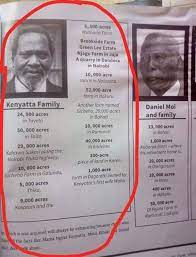WHAT WAS THE ORIGINAL NAME OF "AFRICA" BEFORE THE EUROPEAN CAME TO CONLONIZE IT IN 1822?
WHAT WAS THE ORIGINAL NAME OF "AFRICA" BEFORE THE EUROPEAN CAME TO CONLONIZE IT IN 1822? As a historian, before I give my readers an account about the original name of Africa, it is imperatively important to go back billions and billions years ago in order to come back with realistic truth. When God created Adam and Eve as the first human beings on Earth (Genesis Chapter one (1) verses twenty-six to thirty-one) (26 - 3 1), God blessed them to grow in numbers and subdue the Earth through hard work in diversity.The different colours, human beings have, come as accident qualities.These colours might have come through geographical developments human beings passed through in the course of times. So, being a white man, black man, red man, or the mixtures of the three (3) original colours comes as accidents or the results of natural phenomenona. The original colour of Adam and Eve wasn't discussed in the Bible as an only honest book in the history of mankind. As one of the th...









